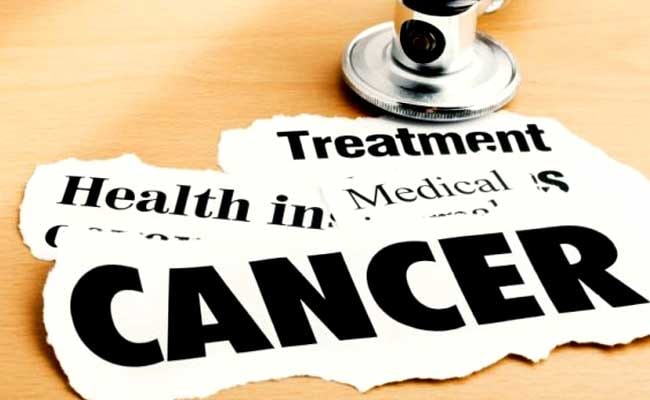
Scientists have developed a portable laboratory on a smartphone which can accurately detect cancer.
Washington:
Scientists have developed a new low-cost, portable laboratory on a smartphone that can analyse several samples at once to catch a cancer biomarker with 99 per cent accuracy, producing lab quality results.
At a time when patients and medical professionals expect always faster results, researchers are trying to translate biodetection technologies used in laboratories to the field and clinic, so patients can get nearly instant diagnoses in a physician's office, an ambulance or the emergency room.
Researchers at Washington State University created an eight channel smartphone spectrometer that can detect human interleukin-6 (IL-6), a known biomarker for lung, prostate, liver, breast and epithelial cancers.
A spectrometer analyses the amount and type of chemicals in a sample by measuring the light spectrum.
Although smartphone spectrometers exist, they only monitor or measure a single sample at a time, making them inefficient for real world applications.
The new multichannel spectrometer can measure up to eight different samples at once using a common test called ELISA, or colourimetric test enzyme-linked immunosorbent assay, that identifies antibodies and colour change as disease markers.
Although researchers only used the smartphone spectrometer with standard lab-controlled samples, their device has been up to 99 per cent accurate.
The researchers are now applying their portable spectrometer in real world situations.
"With our eight channel spectrometer, we can put eight different samples to do the same test, or one sample in eight different wells to do eight different tests. This increases our device's efficiency," said Lei Li, assistant professor at WSU, who led the study.
"The spectrometer would be especially useful in clinics and hospitals that have a large number of samples without on-site labs, or for doctors who practice abroad or in remote areas," Li said.
"They can't carry a whole lab with them. They need a portable and efficient device," he said.
The research was published in the journal Biosensors and Bioelectronics.
(This story has not been edited by NDTV staff and is auto-generated from a syndicated feed.)
At a time when patients and medical professionals expect always faster results, researchers are trying to translate biodetection technologies used in laboratories to the field and clinic, so patients can get nearly instant diagnoses in a physician's office, an ambulance or the emergency room.
Researchers at Washington State University created an eight channel smartphone spectrometer that can detect human interleukin-6 (IL-6), a known biomarker for lung, prostate, liver, breast and epithelial cancers.
A spectrometer analyses the amount and type of chemicals in a sample by measuring the light spectrum.
Although smartphone spectrometers exist, they only monitor or measure a single sample at a time, making them inefficient for real world applications.
The new multichannel spectrometer can measure up to eight different samples at once using a common test called ELISA, or colourimetric test enzyme-linked immunosorbent assay, that identifies antibodies and colour change as disease markers.
Although researchers only used the smartphone spectrometer with standard lab-controlled samples, their device has been up to 99 per cent accurate.
The researchers are now applying their portable spectrometer in real world situations.
"With our eight channel spectrometer, we can put eight different samples to do the same test, or one sample in eight different wells to do eight different tests. This increases our device's efficiency," said Lei Li, assistant professor at WSU, who led the study.
"The spectrometer would be especially useful in clinics and hospitals that have a large number of samples without on-site labs, or for doctors who practice abroad or in remote areas," Li said.
"They can't carry a whole lab with them. They need a portable and efficient device," he said.
The research was published in the journal Biosensors and Bioelectronics.
(This story has not been edited by NDTV staff and is auto-generated from a syndicated feed.)
Track Latest News Live on NDTV.com and get news updates from India and around the world

